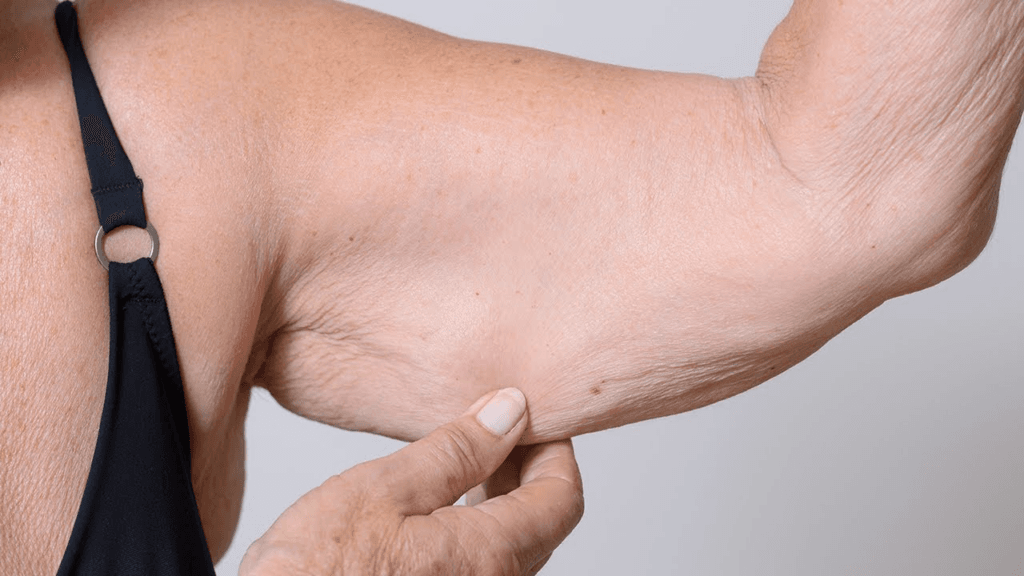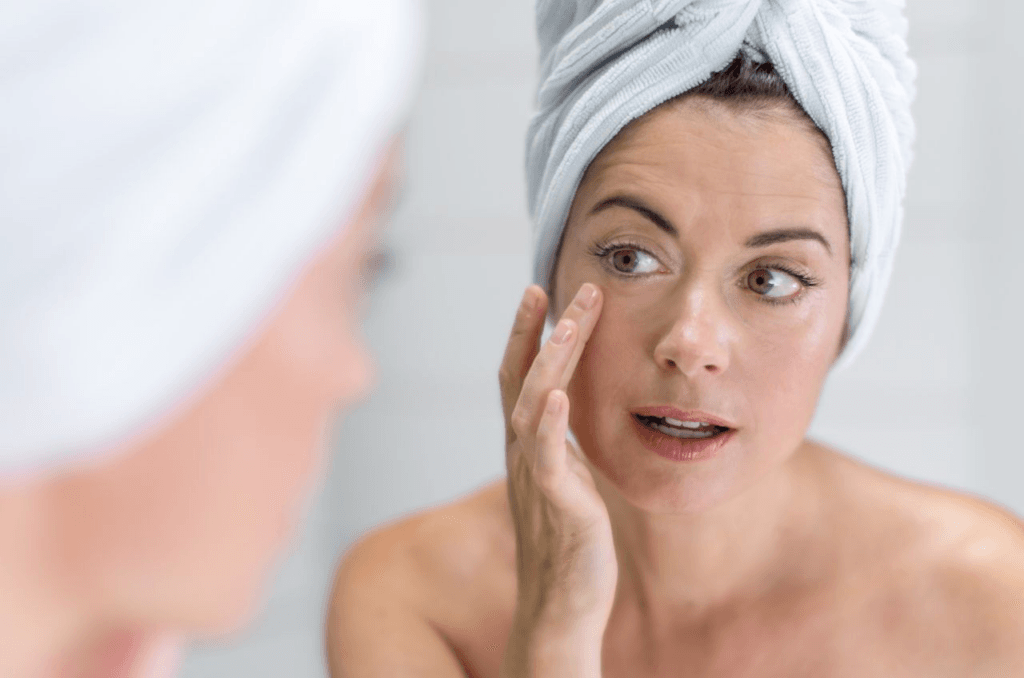Sagging skin, a common concern as we age, is often characterized by a loss of firmness and elasticity, resulting in a less defined facial contour. While genetics play a role, factors like sun exposure, hormonal changes, and weight fluctuations significantly contribute to this visible sign of aging. Fortunately, incorporating the right skincare regimen, including the strategic use of facial oils, can help improve skin’s appearance and address the issue of sagging. This article will explore the science behind facial oils and guide you towards selecting the best option for your individual skin type and needs.

Understanding Sagging Skin
Sagging skin is primarily caused by a decrease in collagen and elastin production. Collagen provides structural support, while elastin gives skin its bounce-back ability. As we age, the production of these essential proteins naturally slows down, leading to a loss of skin firmness and the appearance of sagging. This process is further accelerated by external factors such as prolonged sun exposure, which damages collagen and elastin fibers. Furthermore, significant weight loss can also contribute to sagging skin as the skin loses its underlying support structure. Understanding these underlying causes is crucial for selecting effective treatments.
The visible signs of sagging skin can vary depending on individual factors and the degree of collagen and elastin depletion. Common manifestations include jowls, a loss of definition in the jawline, and sagging cheeks. Fine lines and wrinkles often accompany sagging, further emphasizing the aging process. The severity of sagging can range from mild to severe, and its impact on self-esteem can be significant. Therefore, addressing sagging skin is often a priority for many individuals seeking to improve their appearance and boost confidence.
Beyond the aesthetic concerns, sagging skin can sometimes be indicative of underlying health issues. While not always the case, significant or rapid sagging may warrant a consultation with a dermatologist or healthcare professional to rule out any underlying medical conditions. Regular skin checks and a proactive approach to skincare are essential for maintaining skin health and addressing potential concerns promptly. A holistic approach, combining lifestyle changes and targeted skincare products, is often the most effective strategy.
Addressing sagging skin effectively requires a multi-faceted approach. This includes protecting the skin from sun damage through consistent use of broad-spectrum sunscreen, maintaining a healthy lifestyle with a balanced diet and regular exercise, and incorporating skincare products designed to stimulate collagen and elastin production. The selection of appropriate skincare products, such as facial oils rich in antioxidants and beneficial fatty acids, plays a crucial role in this process.

The Science of Facial Oils
Facial oils are composed of various fatty acids, each with unique properties that can benefit the skin. These fatty acids, such as linoleic acid (omega-6) and oleic acid (omega-9), are essential components of the skin’s lipid barrier. A healthy lipid barrier is crucial for maintaining hydration, protecting against environmental aggressors, and preventing moisture loss. When this barrier is compromised, the skin becomes more prone to dryness, irritation, and premature aging, including sagging.
The application of facial oils helps to replenish the skin’s natural oils, supporting the integrity of the lipid barrier. This, in turn, improves skin hydration and elasticity. Moreover, many facial oils contain antioxidants, such as vitamin E and vitamin C, which combat free radical damage and protect against further collagen and elastin breakdown. This antioxidant protection is crucial in slowing down the aging process and preventing further sagging.
The molecular structure of fatty acids in facial oils also plays a role in their effectiveness. Some fatty acids, like those found in rosehip oil, are readily absorbed into the skin, providing deep hydration and promoting cell regeneration. Others, like those in jojoba oil, mimic the skin’s natural sebum, helping to balance oil production and reduce the appearance of pores. Understanding these properties is key to selecting an oil that best suits your skin type and concerns.
The choice of oil should always be tailored to individual skin needs. Oily or acne-prone skin may benefit from lighter oils like jojoba or rosehip, while dry or mature skin might prefer richer oils such as argan or avocado oil. Patch testing a small amount of oil on your skin before applying it to your entire face is always recommended to avoid any potential allergic reactions.

Best Oils for Skin Elasticity
Rosehip oil, rich in fatty acids and vitamins, is renowned for its regenerative properties. It effectively stimulates collagen production, improving skin elasticity and reducing the appearance of wrinkles and fine lines associated with sagging. Its lightweight texture makes it suitable for various skin types, including sensitive skin. Regular application can contribute to a noticeable improvement in skin firmness over time.
Argan oil, another excellent choice, is packed with antioxidants and vitamin E, protecting the skin from free radical damage and promoting collagen synthesis. Its moisturizing properties help to plump the skin, reducing the appearance of sagging and wrinkles. Argan oil’s rich texture is particularly beneficial for dry and mature skin types, providing deep hydration and nourishment.
Avocado oil, abundant in vitamins A, D, and E, along with healthy fats, deeply nourishes and hydrates the skin. Its high concentration of antioxidants helps to protect against environmental damage, while its moisturizing properties enhance skin elasticity and reduce the appearance of sagging. It’s suitable for various skin types but particularly beneficial for dry and mature skin.
Jojoba oil, though not technically an oil but a liquid wax ester, closely resembles the skin’s natural sebum. This makes it an excellent choice for balancing oil production, preventing clogged pores, and improving skin hydration. While not as potent in stimulating collagen production as rosehip or argan oil, jojoba oil contributes to overall skin health and can indirectly improve skin elasticity by maintaining a healthy lipid barrier.
Choosing the Right Oil for You
Consider your skin type. Oily or acne-prone skin should opt for lighter oils like jojoba or rosehip, which are less likely to clog pores. Dry or mature skin can benefit from richer oils like argan or avocado. Combination skin may require a blend or careful selection based on the specific needs of different areas of the face.
Look for high-quality, cold-pressed oils. These oils retain more of their beneficial nutrients and are less likely to contain harmful additives. Always check the ingredient list to ensure purity and avoid potential irritants or allergens. Organic and sustainably sourced oils are preferable for environmental and ethical reasons.
Start with a small amount and patch test before applying to your entire face. This helps to identify any potential allergic reactions or sensitivities. Begin with a small amount and gradually increase as needed. Applying too much oil can lead to clogged pores, especially for those with oily skin.
Consistency is key. Facial oils are most effective when used consistently as part of a comprehensive skincare routine. Incorporate them into your daily or nightly regimen, depending on the oil’s properties and your skin’s needs. Combine with other skincare products, such as serums and moisturizers, for optimal results. Remember to always consult a dermatologist for personalized advice.
While facial oils can significantly contribute to improving the appearance of sagging skin, they are not a miracle cure. A holistic approach that combines a healthy lifestyle, sun protection, and a consistent skincare routine is crucial for achieving optimal results. Choosing the right facial oil, based on your skin type and concerns, is an important step in this process. Remember to always consult with a dermatologist for personalized advice and to address any underlying skin conditions.
Discover the expertise of Dr. Ebru Okyay, your trusted dermatologist in Antalya. Whether you’re looking to address medical skin concerns or enhance your natural beauty with cosmetic treatments, Dr. Okyay is here to help. With personalized care and advanced techniques, achieving your skin goals has never been easier.
